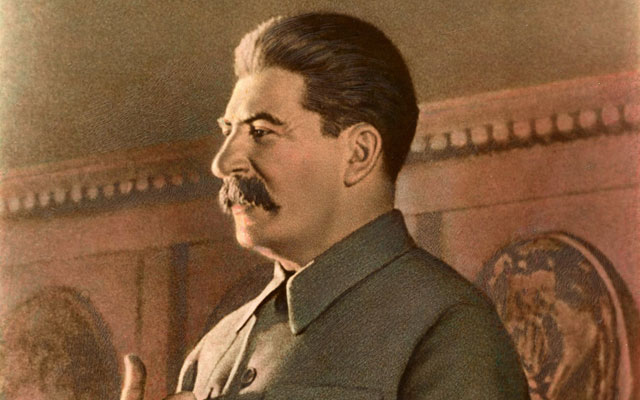60 Years After His Death, Stalin Haunts Russia
Ariel Cohen /
March 5 marks the 60th anniversary of Joseph Stalin’s death.
One of the most infamous leaders of the 20thcentury, Stalin remains a controversial figure among Russians as they refuse to settle a debate about his role and impact. And the recent attempts by the state to remember him may be a harbinger of a larger crackdown.
Stalin, the Communist Party bank robber and enforcer, rose to power after the death of Vladimir Lenin, the founder of the Soviet State. Stalin was the most talented schemer among Lenin’s inner circle. As the Communist Party’s general secretary, he was able to staff the party’s ruling bodies and strategically place his loyalists.
By January 1924, the time of Lenin’s death, Stalin had outmaneuvered Leon Trotsky, the outstanding Red military leader. Stalin then methodically eliminated his opponents—and even potential opponents. Understanding Russia’s backwardness, Stalin jettisoned ideas of the world revolution, preferring to build “socialism in one country.”
But the price of that project was exorbitant. Stalin adopted his arch-enemy Trotsky’s ideas of rapid industrialization and collectivization of agriculture. The steps he took to expropriate the peasantry over the next decade, however, were disastrous—hunger, exile to Siberia, and dispossession, which led to over 5 million dead—and cannibalism.
A murderous paranoiac, Stalin suspected “wreckers,” foreign spies, and internal enemies everywhere, and purged millions, destroying innumerable lives and families. In the anti-church campaign, tens of thousands of churches were destroyed, and hundreds of thousands of priests perished in the Gulag camps.
Executions before World War II left the Red Army and the Molotov–Ribbentrop Pact unprepared to fight Adolf Hitler’s war machine. The great sacrifice of the people of the USSR and help from Western Allies propelled Soviet Russia to victory over Germany in spite of Stalin. Yet, he took credit for it all.
Even after the end of communism, Stalin’s admirers whitewashed him into an “effective manager,” crediting him with making Russia victorious. Stalin must be laughing in his grave as his propaganda proved so effective.
This past February, the Russians celebrated the anniversary of their victory in the historic battle of Stalingrad. Buses and posters with Stalin’s likeness appeared on the streets, and the city of Volgograd even temporarily changed its name back to Stalingrad.
The memory of Stalin is actively promoted by the Kremlin. NTV, one of the state-controlled television channels, is showing a series of programs on the anniversary of Stalin’s death. The programs include a five-part documentary, “Stalin Is with Us,” and the drama, “Comrade Stalin.”
To what end should anyone celebrate the memory of such an evil man? Is this latest attempt to whitewash Stalin a new sign of repression in Russia?
Johannes Voswinkel wrote in Die Zeit:
All of history remains a tactical instrument which one can use to mold anything, and it serves those in power. Historians do not make history but politicians from the Kremlin do. And they follow their own path.
Russia is still battling its past. Lenin’s body still sits on display in his temple-like mausoleum, while Stalin remains buried in the wall of the Kremlin.
As Russia looks back on Stalin, the government’s latest crackdown on political opposition looks all too familiar. Arrests and “telephone justice” are the norm, and dissidents worry that it is back to the Stalinist repression all over again. While the scope of lawlessness is incomparably smaller for now, the apprehension may be justified.
Russia is a land of symbols. Two unparalleled mass murders, buried in the center of Moscow, is a great burden to overcome. Until they are reburied, and their memories exorcised, Russia will not move forward.

